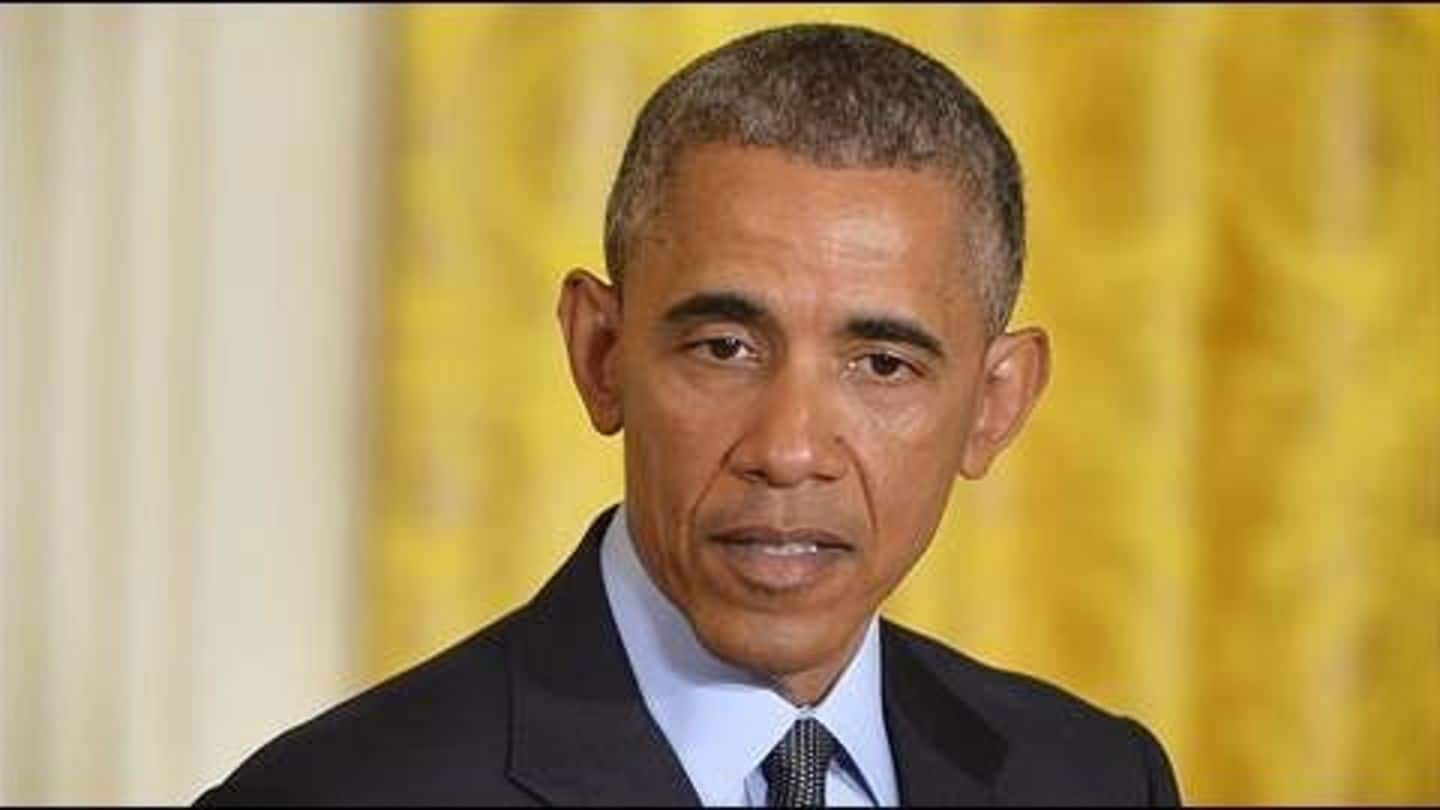
US President Obama permanently bans offshore oil and gas drilling
What's the story
Outgoing US President Barack Obama banned offshore oil and gas drilling "permanently" in the majority of the US-owned northern waters.
He designated regions in the Arctic and Atlantic oceans as "indefinitely off limits" to future leasing.
The move is considered as an attempt to protect the area before Obama leaves office in Jan'17.
Reversing the decision could be difficult for President-elect Donald Trump's supporters.
Reasons
Canada's similar measure in its Arctic waters
In a joint announcement with the US, Canada has also committed to a similar measure in its Arctic waters.
The White House stated the decision was taken for "a strong, sustainable and viable Arctic economy and ecosystem."
It also cited native cultural needs, wildlife concerns, and the region's vulnerability, oil spills, etc. as some of the reasons for the ban.
Information
The decision
The US's decision relied on a 1953 law allowing the President to ban leasing of offshore resources indefinitely. However, Canada would review the decision every five years, while the US's decision is permanent.
Reversal
Attempt to reverse the decision, a legal challenge
Supporters suggested any attempt to reverse the US's permanent decision, outlined by the law would be open to a legal challenge.
Donald Trump, during the election campaign, said he would take advantage of the US's existing oil reserves, prompting concern from environmental activists.
Hoping Trump would reverse the decision, the American Petroleum Institute, however, stated: "There is no such thing as a permanent ban."
Quote
Friends of the Earth's statement
"No president has ever rescinded a previous president's permanent withdrawal of offshore areas from oil and gas development. If Donald Trump tries to reverse President Obama's withdrawals, he will find himself in court."
Fragile Waters
Boost for fragile waters
The move is a huge boost for conserving fragile waters of the Arctic.
The oil industry's safety record in northern waters is pretty bad.
In 1989, the tanker Exxon Valdez ran aground, spilling thousands of barrels of crude oil, polluting 1,300 miles of coastline, in Alaska.
In 2014, Shell's drilling rig, the Kulluk, also ran aground in the Arctic's tempestuous seas.
Oil Industry
Oil firms would want to explore for further profits
Trump's choices for the White House's senior roles have also raised fear among some of the environmental campaigners.
Exxon Mobil Chief Rex Tillerson would be the next Secretary of State and Ricky Perry the next Energy Secretary; both appointments received sharp criticism.
Tillerson may pave the way for an Arctic drilling deal with Russia and offer the oil industry a route round the ban.
Information
Oil drilling
Currently, very little oil drilling takes place in the Arctic waters; it is more difficult and expensive than other options. The waters are so cold it takes bacteria much longer to break up oil products; the drilling conditions are among the most challenging on Earth.